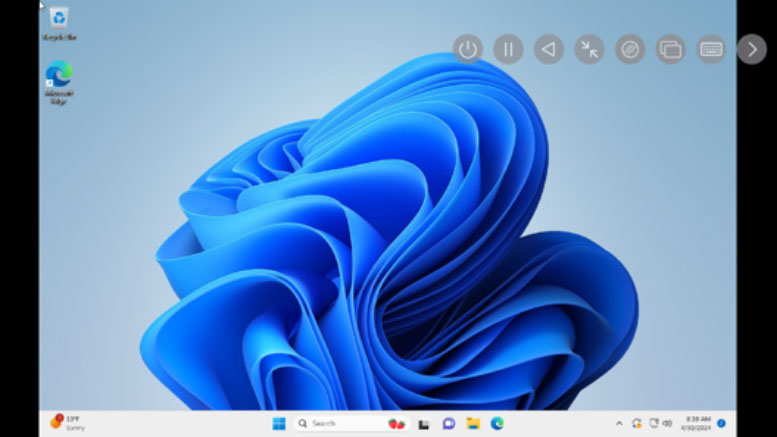Windows 11 runs on the iPhone 15 Pro — Tiny11 and UTM SE used to create a 'terribly slow' pocket PC
Using Tiny11 Core and UTM SE, even an iPhone can run Windows 11.

Just yesterday, Twitter/X user @NTDEV_ posted a series of screenshots showcasing the Tiny11 Core build of Windows 11 running on their iPhone 15 Pro. The emulated specifications provided through the UTM SE PC emulator include a 1 GHz, 1-core virtual QEMU CPU and 2GB of RAM, so this is hardly an ideal use case for Windows 11 or an iPhone 15 Pro, but it's a fascinating showcase of both.
An important distinction to make before proceeding is that "emulation" and "virtualization" are two different concepts. Emulation imitates a specific hardware architecture and allows for hyper-specific software (a la software only released on obscure arcade boards or long-dead PC architectures) to be run on emulator-targeted platforms. Virtualization can be used for emulation, but instead refers to the ability of supported hardware to create virtual pools of resources (CPU cores, RAM, etc) to be dedicated to separate operating systems (often the same OS for different simultaneous sessions/clients) inside a virtual machine.
Behold, probably the very first instance of Windows 11 (in form of tiny11 core) on UTM SE. It is TERRIBLY slow, booting in about 20 minutes, but nonetheless, it's still Windows 11 on an iPhone 15 Pro! pic.twitter.com/Iyr5Txy8uhJuly 20, 2024
Close examination of the screenshots raises some red flags right away. For example, the resolution and aspect ratio are both quite cropped compared to the full extent of the iPhone's display, suggesting dreadful limitations in either emulation performance or configuration options. The screenshots all show very limited, single-window use cases, though text rendering and such still seems to be fine.
It's still impressive that this runs at all — particularly considering the much higher performance overhead inherent to emulating disparate CPU architectures compared to more standard same-architecture virtualization — but it's obvious that the main iOS 17 and upcoming iOS 18 will provide the more usable, visually-enjoyable experience.
As noted by @NTDEV_, the performance here isn't what one would call "usable" despite the acquirement of four screenshots. Taking twenty minutes to boot into any operating system on any modern machine is hardly tolerable, and iPhones don't have the same x86 software or hardware optimizations as modern Macs and Macbooks do. At this time, experiments like these are still in the range of "experimental" phone operating systems in general, like the 9-year-dead FireFox OS (RIP). It's quite the flex for both UTM SE and the Tiny11 guys, though.
Get Tom's Hardware's best news and in-depth reviews, straight to your inbox.

Christopher Harper has been a successful freelance tech writer specializing in PC hardware and gaming since 2015, and ghostwrote for various B2B clients in High School before that. Outside of work, Christopher is best known to friends and rivals as an active competitive player in various eSports (particularly fighting games and arena shooters) and a purveyor of music ranging from Jimi Hendrix to Killer Mike to the Sonic Adventure 2 soundtrack.